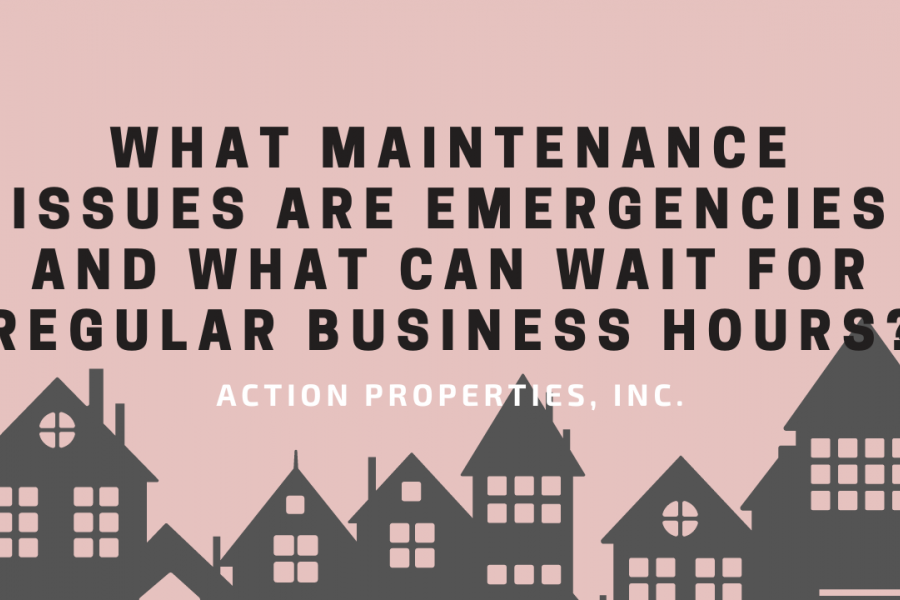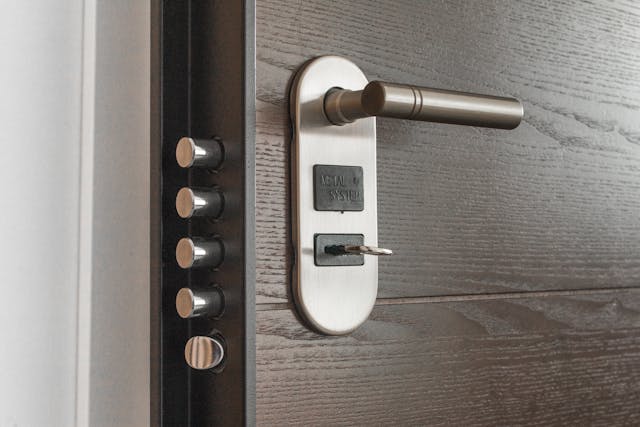
Are you a landlord wondering how to prioritize maintenance requests effectively? Distinguishing between emergencies that require immediate attention and issues that can wait is crucial for managing your property efficiently.
This guide is tailored for landlords and aims to provide clear insights on identifying maintenance emergencies, ensuring tenant safety, and maintaining your property's value.
By understanding what constitutes an urgent repair versus a routine one, you can make informed decisions, keeping your tenants satisfied and avoiding unnecessary expenses. Let's delve into the nuances of property maintenance and equip you with the knowledge to tackle challenges head-on.
What is Considered Rental Property Emergency Maintenance?
Rental property emergency maintenance refers to urgent issues that pose immediate risks to the safety, health, or security of tenants or could potentially cause significant damage to the property if not addressed promptly. These emergencies require swift action, often within 24 hours, to prevent harm or further complications.
Examples of such emergencies include:
- Severe Water Leaks or Flooding: Uncontrolled water can lead to structural damage, mold growth, and electrical hazards.
- Gas Leaks: Pose significant fire and explosion risks, along with health hazards from inhalation.
- Lack of Proper Heating or Cooling: A lack of proper heating or cooling in severe cold or heat, respectively, can render a property uninhabitable.
- Electrical Hazards: Exposed wires, sparking, or any issue that could lead to fire or electrocution must be dealt with as soon as possible.
- Sewage Backups: Sewage backups can cause health hazards due to exposure to harmful bacteria and unpleasant living conditions.
- Major Roof Leaks: Leaks can lead to significant water damage inside the property, affecting its structural integrity and the tenants' belongings.
- Broken Locks or Security Features: Non-functioning security measures compromise the safety of the tenants and the property.

Addressing these issues promptly not only ensures the safety and satisfaction of your tenants, but also helps in maintaining and potentially enhancing the value of your rental property.
What is Not Considered a Maintenance Emergency?
Not all maintenance issues in rental properties qualify as emergencies. Situations that don't pose immediate risks to tenant safety, health, or the property's structural integrity, and can be addressed within a reasonable timeframe, are typically not considered emergencies. These include:
- Minor Leaks: Small drips or leaks that can be contained easily and don't threaten to cause immediate damage.
- Cosmetic Damages: Issues like small cracks in walls, peeling paint, or minor carpet stains that don't affect the property's usability or safety.
- Appliance Repairs: Non-essential appliance breakdowns, such as a dishwasher or microwave, unless it's the only means of cooking and the tenant has no alternatives.
- Noise Complaints: Unless it's extreme and violates local noise ordinances, it's usually a matter to be resolved between tenants or with law enforcement.
- Pest Infestations: Small-scale pest issues might not be emergencies, but this can escalate if it affects the livability or safety of the property.
- Heating or Air Conditioning Issues in Mild Weather: Problems with HVAC systems that don't expose tenants to extreme temperatures might not require immediate fixing.
Tips For Handling Rental Property Emergency Maintenance
Let's explore some practical tips to help you navigate the complexities of rental property emergencies, ensuring swift resolutions and tenant satisfaction.
Being Accessible at All Times
Accessibility is paramount for landlords when it comes to handling emergencies. Make sure your tenants have multiple ways to reach you quickly, whether it's day or night.

This could mean providing them with your phone number, email, and possibly even a messaging app contact. Setting up a clear protocol for emergencies ensures that tenants won't hesitate to inform you when something critical happens, allowing for swift action to mitigate any issues.
Establishing a Network of Emergency Contacts
Prepare for any scenario by compiling a comprehensive list of reliable emergency service providers. This list should include professionals like plumbers for leaks or blockages, electricians for power issues, and HVAC experts for heating or cooling emergencies.
Having these contacts at your fingertips means you can quickly coordinate the necessary repairs, minimizing damage and disruption for your tenants. This will be especially helpful to any long-distance landlords who are unable to see to the problem in person.
Maintaining Open and Honest Communication
Transparent communication during an emergency is invaluable. Keep your tenants in the loop about what's happening, the expected timelines for repair, and any temporary measures they should take.
Acknowledging the issue and keeping tenants informed every step of the way reassures them that their wellbeing is a priority and that the situation is under control.
Understanding and Fulfilling Landlord Obligations
Being well-versed in your responsibilities as a landlord, especially in emergency situations, is essential. This includes not only understanding what constitutes an emergency but also knowing your legal obligations to resolve such issues promptly to maintain a safe and livable environment.

Being proactive in regular property maintenance can also prevent some emergencies from occurring in the first place.
Providing Clear Answers During Crises
In the midst of an emergency, be prepared to answer critical questions clearly and effectively. Tenants will want to know the nature of the emergency, the severity, what immediate actions they should take, and how it will be resolved.
Clear communication can alleviate concerns and help manage the situation more calmly and effectively.
Embracing Empathy in Your Response
Approaching emergencies with empathy and understanding is crucial. Recognize the stress, inconvenience, and potential fear your tenants may be experiencing.
By showing that you care about their situation and are committed to resolving the issue as quickly as possible, you foster a supportive and reassuring environment.
Documenting Every Step of the Process
Thorough documentation of the emergency and the response process is critical. This should include the initial report, any communication with tenants, the steps taken to address the issue, and the final resolution.
Good record-keeping is invaluable for insurance claims, legal protection, and future reference to improve handling similar situations.
Conclusion
Navigating the fine line between emergency and non-emergency maintenance can seem daunting, but with the right approach, it becomes manageable.
Remember, the safety and comfort of your tenants are paramount, and addressing issues promptly can save you time and money in the long run. If you're finding the balancing act a bit overwhelming, consider enlisting the help of a professional property management team.
Action Properties, Inc. specializes in taking the stress out of property management, ensuring your tenants are happy and your investment is secure. Let us handle the emergencies, so you can enjoy peace of mind.
Disclaimer: This blog should not be used as a substitute for legal advice from a licensed attorney in your state. Laws change, and this post might not be updated at the time of your reading. Please contact us for any questions you have in regards to this content or any other aspect of your property management needs.